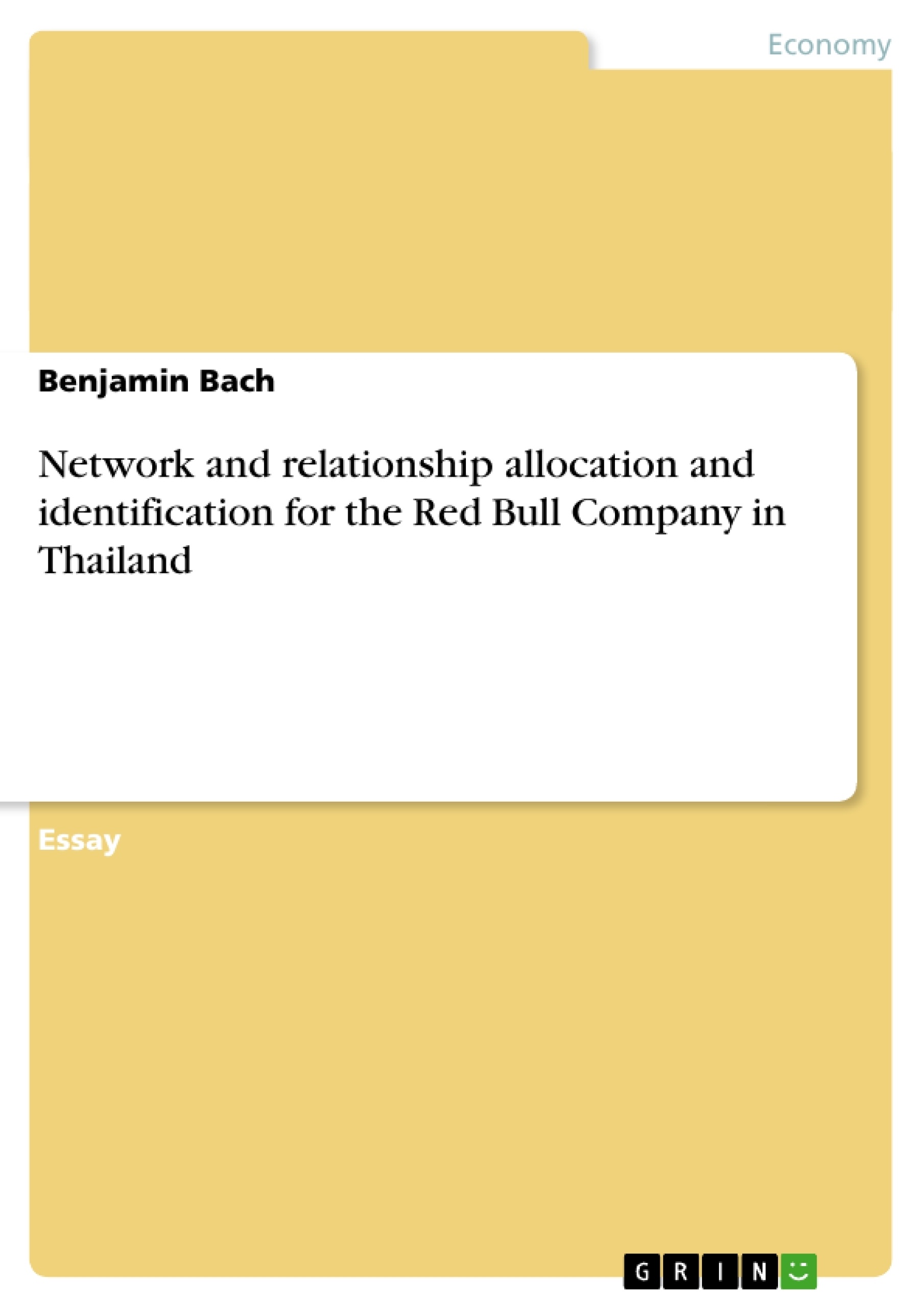This report critically analyses the network allocation and identification for the Red Bull Company in Thailand, and highlights strategic focal net implications in developing this emerging market. The first part of this report will determine major focal networks in Thailand by applying theoretical models to highlight and categorise the most crucial key market domains Red Bull needs to be connected with, while consolidating a position in the Thai functional beverage market. The second part of this essay aims to identify possible strategic implications, in order to build a solid and long-lasting position in the Thai market while collaborating with its potential network constituents. As business networks are getting increasingly important as a powerful tool for strategic business development (McAuley, 2001) and uncertainty attenuation whilst expanding business operations in foreign countries (Hollensen, 2004).
Inhaltsverzeichnis (Table of Contents)
- Introduction
- Thailand Network Motivation
- Business Networks & Focal Net
- Red Bull's Network Allocation
- Customer Markets
- Referral Markets
- Influence Markets
- Employee (Recruitment) Markets
- Supplier Markets
- Internal Markets
- Strategic Implications for Red Bull
- Conclusion
- References
- Bibliographies
- Appendices
- Appendix A - Thailand Country Profile
- Appendix B – Thai Functional Beverage Market
Zielsetzung und Themenschwerpunkte (Objectives and Key Themes)
This report examines the network allocation and identification for the Red Bull Company in Thailand, highlighting strategic focal net implications for developing this emerging market. It aims to determine major focal networks in Thailand by applying theoretical models to categorize the most crucial key market domains for Red Bull's success. The report further explores strategic implications for building a solid and long-lasting position in the Thai market, considering the importance of business networks in today's fragmented international business environment.
- Identifying key market domains for Red Bull in Thailand
- Analyzing the strategic implications of network allocation in the Thai market
- Exploring the role of business networks in international business development
- Understanding the cultural context of business relationships in Thailand
- Investigating the potential of strategic focal nets for Red Bull in Thailand
Zusammenfassung der Kapitel (Chapter Summaries)
The first chapter provides an overview of the report's objectives and methodology. Chapter two explores the business environment in Thailand, focusing on the country's economic, political, and cultural landscape. It emphasizes the importance of understanding cultural nuances in business relationships, particularly the value placed on personal relationships in Thai society.
Chapter three delves into the concept of business networks and their significance for Red Bull's expansion in Thailand. It utilizes theoretical models to identify and categorize key market domains that are crucial for Red Bull's success in the functional beverage market.
Chapter four examines the different types of networks Red Bull needs to engage with in Thailand, including customer, referral, influence, employee, supplier, and internal markets. It provides a detailed analysis of each market segment and highlights the unique challenges and opportunities associated with each.
Schlüsselwörter (Keywords)
This report focuses on key concepts such as business networks, network allocation, focal net, strategic implications, Thailand, Red Bull, functional beverage market, cultural context, and business relationships.
Frequently Asked Questions
What is the focus of the report on Red Bull in Thailand?
The report analyzes the network allocation and identification for Red Bull in the Thai market, focusing on strategic focal nets and business relationships.
Why are business networks important for Red Bull in Thailand?
Business networks are crucial for strategic development and uncertainty attenuation when expanding into foreign markets like Thailand.
Which market domains are identified for Red Bull?
The report categorizes key domains including customer, referral, influence, employee (recruitment), supplier, and internal markets.
How does Thai culture influence business relationships?
Thai society places a high value on personal relationships, which significantly impacts how business networks are built and maintained.
What are the strategic implications for Red Bull's position in Thailand?
To build a long-lasting position, Red Bull must collaborate effectively with potential network constituents and adapt to the fragmented international business environment.
- Arbeit zitieren
- MSc International Marketing Strategy Benjamin Bach (Autor:in), 2007, Network and relationship allocation and identification for the Red Bull Company in Thailand, München, GRIN Verlag, https://www.grin.com/document/76900



